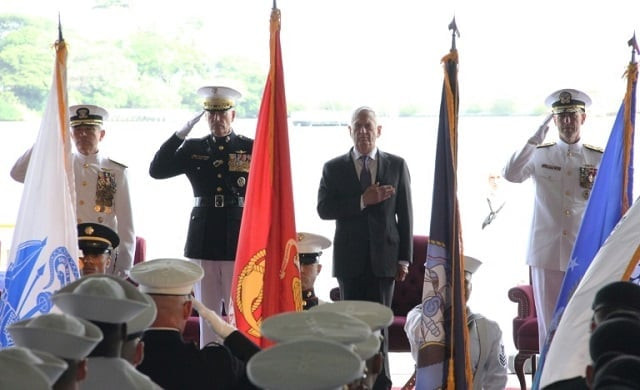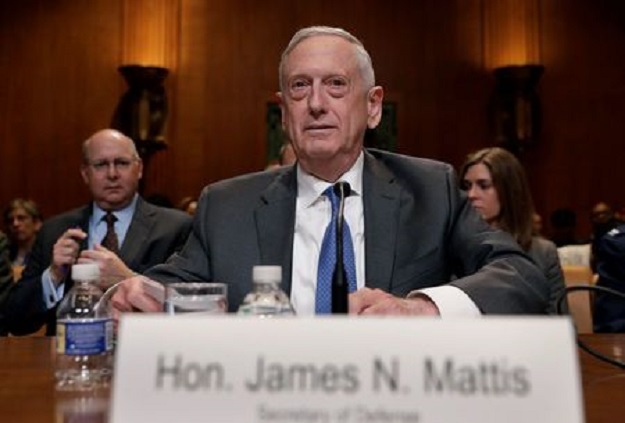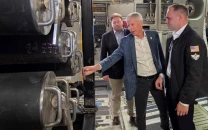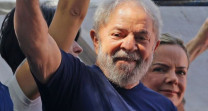In nod to India, US military renames its Pacific Command
The Pentagon is renaming its oldest and largest military command to reflect the growing importance of the Indian Ocean

US Pacific Command head Admiral Harry Harris (L); General Joe Dunford, Chairman of the Joint Chiefs of Staff (2nd L); US Defense Secretary Jim Mattis and Admiral John Richardson (R) attend a change of command ceremony in Pearl Harbor, Hawaii on May 30, 2018. PHOTO: AFP
From now on, the storied US Pacific Command, or PACOM, which was formed after World War II, will be known as the Indo-Pacific Command.
The name change is largely symbolic for now, and won't immediately result in any shifts in the command's boundaries or assets across the vast area stretching from the western part of India to America's Pacific coastline.
"In recognition of the increasing connectivity between the Indian and Pacific Oceans, today we rename the US Pacific Command to US Indo-Pacific Command," Mattis said in Pearl Harbor in Hawaii.
Pentagon disinvites China from major US military exercise
"Over many decades this command has repeatedly adapted to changing circumstance and today carries that legacy forward as America focuses west."
 US Defense Secretary James Mattis testifies before the Senate Appropriations Defense Subcommittee hearing on funding for the Department of Defense, on Capitol Hill in Washington, US, May 9, 2018. PHOTO: REUTERS
US Defense Secretary James Mattis testifies before the Senate Appropriations Defense Subcommittee hearing on funding for the Department of Defense, on Capitol Hill in Washington, US, May 9, 2018. PHOTO: REUTERSThe name change is part of Washington's efforts to counter China's growing influence across the Asia-Pacific domain, even though critics say President Donald Trump has ceded considerable regional leadership.
Trump has pulled the United States out of the Trans-Pacific Partnership (TPP) agreed in 2015 by a dozen nations that accounted for 40 per cent of the global economy.
The remaining 11 countries are moving forward with the deal without Washington, leaving America with a diminished say on regional trade rules and creating an opening for Beijing. Recent years have seen China emerge as a major regional power.
In 2017, it opened its first overseas naval base in Djibouti and has strengthened ties with several regional countries including Pakistan, Sri Lanka and the Maldives.
And Beijing is pursuing its "Belt and Road" global infrastructure initiative that invests in Southeast Asian countries but which US critics say is based on "predatory" economics.
"The Indo-Pacific has many belts and many roads," Mattis said. "America continues to invest vigorously in Indo-Pacific stability, bolstering the free and open rules-based international order."
Mattis was in Hawaii for a ceremony marking the departure of Admiral Harry Harris as PACOM's head. He has been nominated to be ambassador to South Korea and is being replaced by Admiral Philip Davidson.
Mattis in February unveiled the US National Defense Strategy which made clear America will focus on Asia in the context of China's growing military might.
China "seeks Indo-Pacific regional hegemony in the near term and displacement of the United States to achieve global preeminence in the future," Mattis wrote.
Time for 'civilised nations' to unite to end Syria civil war: US Defense Secretary Mattis
Pentagon officials say the command's new name also recognizes India's growing role in providing regional security and forces military thinkers to consider the broader region.
The Pentagon chief visited India in September in an effort to further strengthen growing military ties, saying at the time that the world's largest democracy is "clearly a pillar of regional stability and security."
In 2016 the United States designated India a "Major Defense Partner" with the aim of improving military cooperation, increasing information-sharing and cutting red tape to ease defense deals.


















COMMENTS
Comments are moderated and generally will be posted if they are on-topic and not abusive.
For more information, please see our Comments FAQ